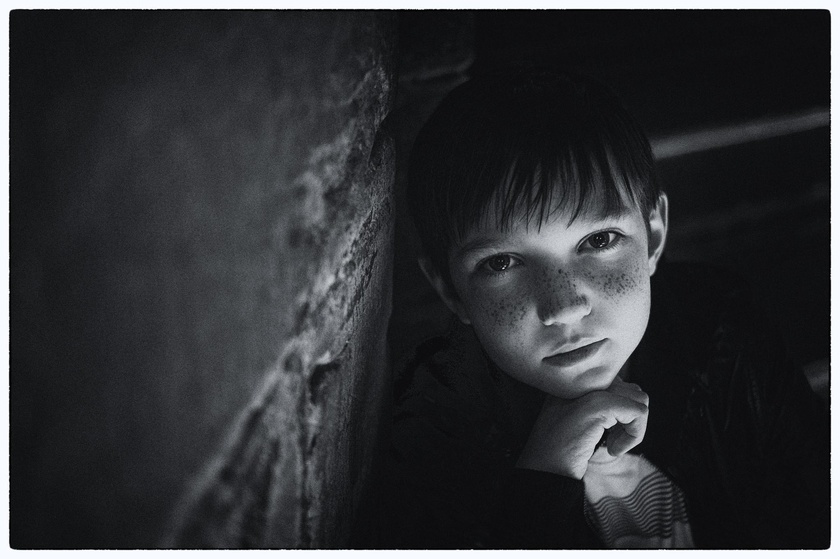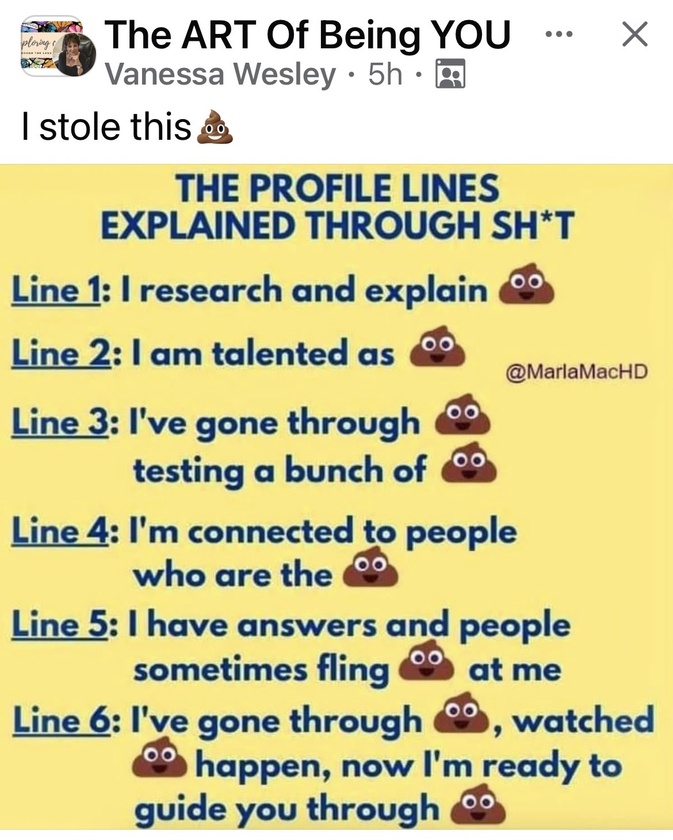5th line children (and their parents) plus Left angle cross this and that
“Obviously, when you're dealing with the left angle you're dealing with the transpersonal. One of the things to understand about the transpersonal is that those that you’re going to be connected to are not necessarily your peers. In other words, the most important relationship for a left angle three-old may be the gardener who works in the backyard of the house. And it may be a frightening relationship for the mother to watch, if you know what I mean.
In other words, when you're dealing with a left angle child, one of the things is that the parent of the left angle child has to have a different kind of security in their child, because the child is going to want to bond with those that don’t fit into the parents’ preconceived notion of who your friends should be.
As a 5/1 myself I can remember my mother complaining to me that I didn't have any friends my age. Well, that’s true. I didn’t. They were not karmically linked to me. I had friends who were much older. Unfortunately, for me they taught me all the
vices I wouldn’t learn for years if I had friends my own age. It was a real advantage. But it’s not something that was accepted by my parents or considered normal. So, this is something that’s very important to grasp.
When you’re dealing with a left angle child, you have to recognize that they are going to have bonds with those that really are going to be challenges to you as a parent. If your child is bonded to another three-year old, there’s no challenge there. You’re still this big huge monster. You’re still looking down on them. You really have this control.
But when your three-year old bonds with somebody that weighs 240 pounds and can knock you across the lawn, you begin to have real concerns. “I don’t want my child hanging around with”—whatever the case may be.
So this is one of the most difficult aspects of raising a left angle child is that they are not going to conform to the same social patterns. And that means that you're going to have a lot of very confusing things that you’re going to have to deal with.
And the first thing that’s confusing for the parent is when your child at a very early age gets to reference adult behavior through an outside adult, because the moment they do that they measure you. Parents are terrified of being measured by their children. They really are. The worst thing you can do is come home and say “Gee, Johnny has a nice Dad.” Whoa; “What do you mean Johnny has a nice Dad? What’s wrong with your Dad?” ...
Now, it’s one of the things to understand about the 5 is that the 5 is here only to do things when it’s practical to do them. That’s what The General is all about. The General is only a general when there is a crisis. So, if you’re that mother and you want your child to set the table, wait until you're in the kitchen. Wait until you're cooking. And then yell “My hands are full. Could you set the table?” They’ll set the table. Won’t resent it. Won’t mind at all. It’s useful and practical to do the job.
And it’s one of the things to understand about the 5. You have to be able to understand their underlying psychology. Their attitude is: “I am a valuable resource to be only used when necessary.” After all, why do you think they get this projection that they’re saviors and saints and all of this stuff? This is what that projection comes from. “I'm really valuable when you use me in times of crisis. So don’t load me up with all that stuff.”
So right away you understand something in this fundamental relationship with the child. That attitude of theirs needs to be nurtured. It needs to be nurtured so you have to be smart enough to know how to take advantage of that. In other words, never ask the child to do something when you're free to do it yourself. Always pretend that you’re in something else, then it’s all fine. Then they’ll say “All right, she’s useless, but she does need to get it done because she can’t do it, and it’s practical for me to go up there and do it.”
Consciousness; because that’s what it is. It’s star consciousness. These are the potential of lights that have universal power inherent in all 5s. And you can see that in the Limited Perspective. The Limited Perspective is I am not ordinarily available; I'm only here to save you. Think about that. That’s really bizarre. And it’s a thing to understand about why the 5th line gets this power of projection.
The other thing is to recognize is that what you're looking at with that Limited Perspective, is that you're looking at the same thing that comes with developing this Projected Attitude. In other words, when the child is only used in those situations where it’s practical for it to apply its energy, its whatever, then you're enhancing this sense of: “I'm very valuable in certain situations.” This is very important for the 5.
But if you have a mother that keeps on insisting that it’s a good thing and it's a habit that you should really set the table every night, oh yeah sure, the 5 will go along with it. They’re children, after all, dealing with their big parents. But the next time they even say your name, you're already paranoid about what they’re going to ask you to do that’s another useless thing.
And this is the beginning of the deep 5th line paranoia: “What do they want? What does she want this time? What idiocy does she want me to do which she could do herself? Why is she asking me again? She’s got nothing to do. She’s sitting up there telling me I should do it.” You’ve got a 5th child it’s like: “She’s got a problem. She should be more occupied in her life. I don’t know why she needs me? When she needs me I’m available.” This is star consciousness.
I’ve watched a great deal 5s in my life, and they're not stars at all. They don’t have any star consciousness whatsoever. It was stripped away from them when they were very young because the basic theme life is homogenization. The basic theme of life is become your conditioning, become what the other is like. And if you're a left angle child that is denied its karmic allies, if you're a left angle child that’s treated as ordinary when in fact you're not, then you can see that they end up being disturbed and powerless.
Nobody has greater problems with their reputation than 5s; nobody. No other line has to deal with all that stuff. The failed saviors, the failed generals, the failed saints, the failed therapists; this is all 5th line themes. And unfortunately that paranoia is built early because the parent doesn’t treat the star properly. You give the star a dressing room. You put a star on the door. You look at them with that: they're weird, but they’re interesting. “This is my weird one. Here’s my normal one. Here’s my different one.” And you do that with a sense of pride. “My normal one sets the table every day. My different one does it when everybody else is busy. You know it’s like it’s different.”
But the more you nurture that special quality, the more attractive
they become. And as you’ll see that’s their Aspired to Role. Their Role is to be the attraction of projection. Now, I want to tell you
something. I live in a deep projection field. To be attractive to
projection, boy if you're not equipped you’re screwed. Because it's overwhelming what that can do to you. It’s overwhelming.
And most of these children back away from it for the rest of their lives; particularly the ones that have the 5 unconscious, because it’s very, very difficult for them, because their specialness has never been accentuated.
Now, in families where you have many children, this is a very, very delicate balancing act between the children. But if you treat children correctly according to their nature, they will accept those differences.
My daughter always has a different relationship with me than my sons will ever had. And it’s because she's a left angle. It’s different. She’s a 5. She’s a 5/1 like me. It’s different. I focus on her specialness. And there are only very, very specific things that I can ask of her that allow her to fulfill that and to ride on that. That’s very different than my sons. It’s very different than my 1/3s.
So it’s one of the things to understand about the nature of the 5 is that you're really feeding that strength of they are here for something special. And the development of that sense in their spirit that other people are going to notice that as well, this is a training program. If we don't train 5s, we don't get the universal input that we need.
To be the parent of a left angle 5, the real dilemma in all of that is that the parent themselves have to accept a deeply diminished role and a deeply diminished sense of importance. It is a parent that has to accept that the best adult for their child may not be themselves. Or the adult that best influences their child may not be themselves. They really have to accept the difference that is there.
And in that, there is only one technique for the parent of a 5th line child. And the technique is: “I can’t; can you? I can't; can you?” So this is a parent that constantly has to say to its child: “I can’t. Can you?” Now, there's nothing healthier for a 5th line child than a parent who says: I can’t; can you?
I’m a 5th line child. My father never said “I can’t; can you?” It would have killed him to say such a thing. He had one left angle wild young child and three right angles that did everything Papa said. He never would have even considered saying such a thing: I can’t; can you?
And it’s one of the things to understand about what happens with a 5th line being is that parents see themselves as being God-given authorities for their children. That they’re the Holy Grail. And the moment that you have a left angle child, particularly a heretic, it’s like who the #$%$ do you think you are? Because that’s basically what it is. “Who do you think you are?”
“Yeah, yeah, yeah you did give birth to me. Well, it’s not my fault. Don’t lay that trip on me. That’s your trip.” And you have to see that the 5, the whole process of the 5 is that if you don’t do that for them they never get to see their true potential. They don’t. They just become more and more paranoid. They realize that less and less people are truly going to ask them: They can’t; can you? But ask them in terms of something that’s truly of value and practical that they can respond to.
You don't train them. They’re not going to be able to do that. They’re going to fall apart under the pressure, under the projected pressure that they’re going to have to deal with.
So, this is the most important mantra to teach this mother aside from the fact that your child may be interested in other adults and people you don't like on top of it. That you have to see that you have to be very self-effacing with these children in order to really give them a sense of their value in life.
The only time a 5th line child feels of value is when the parent says “I think you're better than I am.” And that’s what “I can’t; can you?” is all about. It’s like: “You have a special gift. You can do something special. I can’t; can you?” Now, that’s a mantra that transforms a 5th line child; but, it’s very difficult for the parent.”
~Ra Uru Hu



















